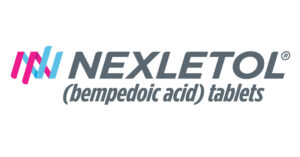Vitamins and their importance in our daily lives cannot be overstated. These essential nutrients play a pivotal role in maintaining our health and well-being. From supporting immune function to enhancing bone strength, and from aiding in energy production to ensuring proper growth and development, vitamins are the unsung heroes of our body’s complex systems. In this blog post, we delve into the diverse world of vitamins, exploring their types, roles, and the impact of lifestyle and dietary choices on their absorption. Whether you’re a nutrition enthusiast or someone curious about improving your health, this comprehensive guide will illuminate the essential nature of vitamins and how to optimize their benefits in your daily life.
Table of Contents
Types of Vitamins
When discussing vitamins and their importance, it’s crucial to understand the different types that our bodies require. Vitamins are organic compounds that are essential in small amounts for supporting normal physiological function. They fall into two main categories based on their solubility: fat-soluble vitamins and water-soluble vitamins.
Fat-Soluble Vitamins
- Vitamin A: Essential for healthy vision, immune function, and skin. It’s found in foods like carrots, sweet potatoes, and spinach.
- Vitamin D: Known as the “sunshine vitamin,” it is crucial for bone health and calcium absorption. Sources include sunlight exposure, fatty fish, and fortified foods.
- Vitamin E: Acts as an antioxidant, protecting the body from free radicals. It’s abundant in nuts, seeds, and vegetable oils.
- Vitamin K: Vital for blood clotting and bone health. Green leafy vegetables and fermented foods are good sources.
These vitamins are stored in the body’s fatty tissues and liver, and they are best absorbed when consumed with dietary fat.
Water-Soluble Vitamins
- Vitamin C: Important for the immune system, wound healing, and the absorption of iron. Citrus fruits, strawberries, and bell peppers are rich sources.
- Vitamin B1 (Thiamine): Aids in energy metabolism and nerve function. Found in whole grains, pork, and peas.
- Vitamin B2 (Riboflavin): Essential for energy production and skin health. Available in milk, eggs, and green vegetables.
- Vitamin B3 (Niacin): Supports metabolism, skin health, and DNA repair. Sources include meat, fish, and whole grains.
- Vitamin B5 (Pantothenic Acid): Necessary for hormone and cholesterol production. Found in almost all foods.
- Vitamin B6 (Pyridoxine): Important for brain development and immune function. Poultry, fish, and potatoes are good sources.
- Vitamin B7 (Biotin): Supports healthy hair, nails, and metabolism. Commonly found in eggs, almonds, and sweet potatoes.
- Vitamin B9 (Folate): Essential for cell growth and DNA formation. Leafy greens, legumes, and fortified products are rich in folate.
- Vitamin B12 (Cobalamin): Necessary for nerve tissue health and blood cell production. Found primarily in animal products like meat and dairy.
Water-soluble vitamins are not stored in the body and need to be consumed regularly. They are generally lost through urine, which means a continuous supply in the diet is essential for health.
Vitamin Deficiencies and Health Impacts
Exploring vitamin deficiencies and their importance in maintaining health is vital, as these deficiencies can lead to a range of health issues. Each vitamin deficiency presents specific symptoms and can have long-term effects on overall health.
Fat-Soluble Vitamin Deficiencies
- Vitamin A Deficiency: This can lead to night blindness and, in severe cases, total blindness. It can also weaken the immune system, making the body more susceptible to infections.
- Vitamin D Deficiency: Commonly leads to bone-related issues like rickets in children and osteoporosis in adults. It can also contribute to muscle weakness and has been linked with mood disorders like depression.
- Vitamin E Deficiency: Although rare, it can result in nerve and muscle damage, leading to muscle weakness and vision problems. It can also weaken the immune system.
- Vitamin K Deficiency: This can cause excessive bleeding and delay in blood clotting times due to impaired blood coagulation.
Water-Soluble Vitamin Deficiencies
- Vitamin C Deficiency: Scurvy, the most famous result of Vitamin C deficiency, presents with symptoms like fatigue, gum disease, and skin problems. The body’s ability to heal wounds is also compromised.
- B-Complex Vitamin Deficiencies:
- B1 (Thiamine) Deficiency: Leads to beriberi, causing symptoms like fatigue, confusion, and nerve damage.
- B2 (Riboflavin) Deficiency: Causes skin disorders, mouth sores, and sore throat.
- B3 (Niacin) Deficiency: Can result in pellagra, characterized by dermatitis, diarrhea, and dementia.
- B5 (Pantothenic Acid) Deficiency: Rare but can cause symptoms like fatigue, insomnia, and stomach pains.
- B6 (Pyridoxine) Deficiency: May lead to anemia, dermatitis, and high blood pressure.
- B7 (Biotin) Deficiency: Can cause hair loss, skin rashes, and neurological symptoms.
- B9 (Folate) Deficiency: Leads to megaloblastic anemia and, in pregnant women, can result in birth defects.
- B12 (Cobalamin) Deficiency: Causes megaloblastic anemia, fatigue, memory loss, and neurological changes.
Understanding the impact of vitamin deficiencies and their importance in our daily diet is crucial. These deficiencies can be prevented and treated through a balanced diet rich in various vitamins or, in some cases, through supplementation. However, it’s important to consult with a healthcare provider before starting any supplement, especially to address specific health concerns related to vitamin deficiencies. Regular monitoring and a well-rounded diet are key to preventing these deficiencies and maintaining optimal health.
Vitamins and Dietary Needs
Understanding vitamins and their importance in meeting dietary needs is essential for maintaining a healthy, balanced diet. The body requires a range of vitamins to function optimally, and these needs can be fulfilled through various dietary sources.
Meeting Vitamin Needs Through Diet
- Diverse Diet: The most effective way to meet vitamin needs is through a varied and balanced diet. Different foods provide different vitamins and minerals, so consuming a wide range of fruits, vegetables, whole grains, lean proteins, and healthy fats ensures a comprehensive intake of essential nutrients.
- Fruit and Vegetables: Rich in vitamins such as Vitamin C, most of the B vitamins, and Vitamin A (in the form of beta-carotene), fruits and vegetables should be a staple in every meal. Aim for a variety of colors to maximize nutrient intake.
- Whole Grains: Sources of B vitamins and Vitamin E, whole grains like brown rice, quinoa, and whole wheat are integral for a balanced diet.
- Protein Sources: Animal proteins are primary sources of B vitamins, particularly B12, which is not naturally found in plant-based foods. Plant-based proteins like legumes, nuts, and seeds also provide essential vitamins, including B vitamins and Vitamin E.
- Healthy Fats: Necessary for the absorption of fat-soluble vitamins (A, D, E, K), healthy fats from sources like avocados, nuts, seeds, and olive oil are important components of a nutritious diet.
Special Dietary Considerations
- Vegetarian and Vegan Diets: Those following plant-based diets should be mindful of certain vitamins, particularly Vitamin B12, which is predominantly found in animal products. Fortified foods and supplements can be important in these diets to ensure adequate intake.
- Age-Related Needs: Dietary needs, including vitamin requirements, can change with age. For instance, older adults may need more Vitamin D and B12.
- Pregnancy and Lactation: Increased demands for certain nutrients, including Folate (B9) and Vitamin D, are crucial during pregnancy and breastfeeding for the health of both mother and baby.
Supplements and Fortified Foods
While a balanced diet is the best way to meet vitamin needs, supplements and fortified foods can play a role in ensuring adequate intake, especially for those with specific dietary restrictions or health conditions. However, it’s important to approach supplementation with care and ideally under the guidance of a healthcare professional, as excessive intake of certain vitamins can have adverse effects.
Vitamin Supplements vs. Natural Sources
When considering vitamins and their importance in our diet, a common question arises: should we opt for vitamin supplements or rely solely on natural sources? Understanding the differences and benefits of each approach is crucial for making informed decisions about our health.
Natural Sources of Vitamins
- Whole Foods: Natural sources of vitamins are primarily whole foods like fruits, vegetables, grains, meats, and dairy products. These foods provide a complex nutritional package that includes fiber, minerals, and other beneficial compounds alongside vitamins.
- Bioavailability: Vitamins from natural sources are generally more bioavailable, meaning the body can absorb and utilize them more effectively. This is because they are often combined with other nutrients that aid in absorption.
- Balanced Nutrition: Consuming vitamins through a varied diet naturally leads to a more balanced intake of nutrients, reducing the risk of excessive or unbalanced vitamin consumption.
Vitamin Supplements
- Convenience and Specificity: Supplements offer a convenient way to intake vitamins, especially for those with specific deficiencies or dietary restrictions that make it difficult to get certain nutrients from food alone.
- High Doses: Supplements can provide higher doses of vitamins than what is typically achievable through diet alone. This can be beneficial in certain medical conditions but also poses a risk for toxicity, particularly with fat-soluble vitamins.
- Purity and Absorption: The purity and absorption rates of supplements can vary greatly depending on the quality of the product. Some may contain additives or are not in a form readily used by the body.
Comparing Supplements and Natural Sources
- Effectiveness: While supplements can fill nutritional gaps, they can’t completely replicate all the benefits of vitamins obtained from natural food sources. Whole foods provide a more complex nutritional benefit that goes beyond just vitamins.
- Safety: There is a higher risk of overconsumption and potential toxicity with supplements, especially with fat-soluble vitamins like A, D, E, and K, which can accumulate in the body. Natural sources typically pose less risk of excessive intake.
- Cost and Accessibility: Supplements can be costly, and their availability varies. In contrast, natural sources of vitamins, like fruits and vegetables, are widely available and often more cost-effective.
Related: Vitamin D Deficiency and Its Importance: Understanding Risks, Symptoms, and Solutions
Special Considerations for Different Life Stages
When discussing vitamins and their importance, it’s essential to consider how vitamin needs can vary across different life stages. Each stage of life – from infancy to older adulthood – has unique nutritional requirements, influencing the type and amount of vitamins needed for optimal health.
Infants and Children
- Rapid Growth: Infants and children experience periods of rapid growth, requiring higher amounts of certain vitamins for proper development. For instance, Vitamin D is crucial for bone growth and development.
- Brain Development: Vitamins like B6, B12, and D are vital for brain development and cognitive function in young children.
- Immune System Support: Vitamins A, C, and D play significant roles in developing and strengthening the immune system.
Teenagers
- Puberty and Growth: Teenagers need increased amounts of certain nutrients, including vitamins, to support the rapid physical and hormonal changes during puberty.
- Bone Health: Essential vitamins for bone health, such as Vitamin D and K, are crucial during these years to build bone density.
- Energy Metabolism: B vitamins are vital for energy production, especially important for active teenagers.
Adults
- Maintenance: In adulthood, vitamins are essential for the maintenance of bodily functions, including cellular repair, metabolism, and immune function.
- Reproductive Health: For women of childbearing age, vitamins like Folate are essential for fetal development and should be monitored carefully.
Pregnancy and Lactation
- Increased Nutrient Needs: Pregnant and breastfeeding women have increased needs for certain vitamins, such as Folate (B9), to support the growth and development of the fetus and newborn.
- Bone Health for Mother and Baby: Vitamin D is essential during this stage for both mother’s and baby’s bone health and overall well-being.
Older Adults
- Bone and Muscle Health: With age, the need for Vitamin D and Calcium increases to maintain bone health and prevent osteoporosis.
- Cognitive Function: Vitamins B12 and D are critical in older adults for maintaining cognitive function and overall mental health.
- Absorption Challenges: The ability to absorb certain vitamins decreases with age, necessitating a higher intake or supplementation, particularly for vitamins B12 and D.
Understanding vitamins and their importance across different life stages is key to maintaining health throughout the lifespan. It’s important to adapt dietary choices and, when necessary, supplement intake to meet the changing nutritional needs associated with each life stage. Regular consultations with healthcare providers can help tailor vitamin intake to individual needs at each stage of life.
Conclusion
In conclusion, understanding vitamins and their importance is a key component of maintaining a healthy and balanced lifestyle. Vitamins, in all their diversity, play indispensable roles in our bodily functions, from supporting immune health and bone strength to facilitating energy production and cognitive function.
The journey through the world of vitamins reveals that a balanced and varied diet remains the cornerstone of adequate vitamin intake. While supplements can be beneficial in certain cases, they are not a one-size-fits-all solution and should be used judiciously, ideally under the guidance of healthcare professionals.




